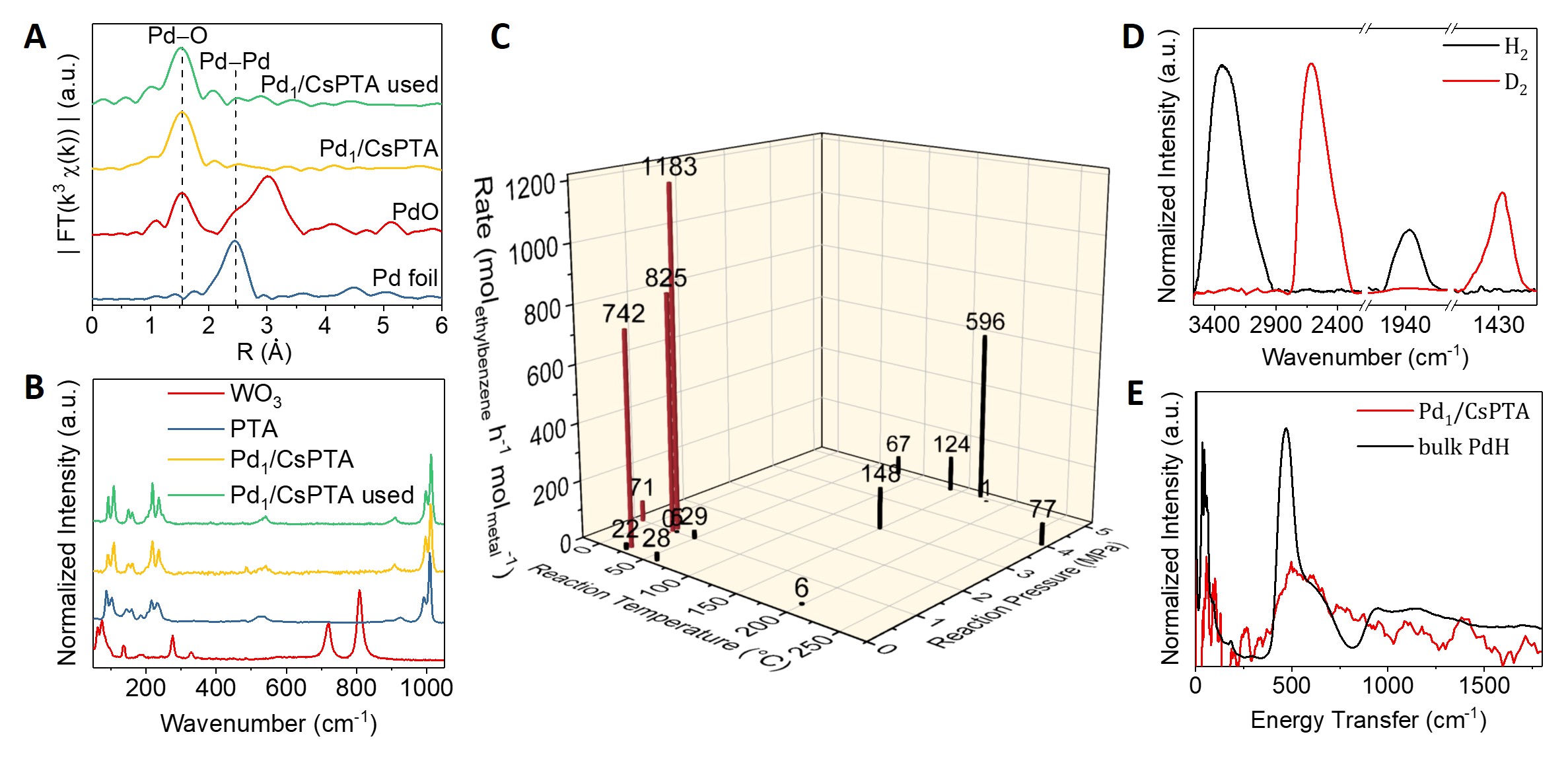(50h) Low-Temperature Hydrodeoxygenation By Polyoxometalate-Supported Pd1 Single-Atom Catalysts
AIChE Annual Meeting
2020
2020 Virtual AIChE Annual Meeting
Catalysis and Reaction Engineering Division
Biomass Upgrading I: Deoxygenation and Oxidation
Monday, November 16, 2020 - 9:15am to 9:30am
Hydrodeoxygenation (HDO) is essential for the conversion of biomass resources into fuels and chemicals. Most catalysts suffer from low activity under mild conditions or low selectivity and stability under required harsh reaction conditions. Herein, we present a heterogeneous Pd1/CsPTA catalyst that exhibits turnover-frequencies of up to 10,000 h-1 for the HDO of a variety of aromatic C=O and COH-containing compounds under mild reaction conditions (30 ËšC and 1 MPa H2 pressure). Isotope labeling studies show that the HDO of carbonyl compounds follows a reduction, hydrogenolysis pathway in contrast to most previously reported acidic HDO catalysts. A combination of inelastic neutron scattering, infrared spectroscopy, kinetic studies and DFT calculations reveal the formation of hydride species from the heterolytic H2 splitting explaining the catalytic activity significantly enhanced compared to all previously reported Pd particle catalysts. DFT calculations further confirm the heterolytic H2 splitting with low energy barriers and suggest that water is actively participating in the catalytic cycle. The hydrogenolysis reaction is predicted to follow a two-step mechanism involving the initial protonation of the OH group preceded by the hydride transfer. Furthermore, we show that the substrate scope can be extended to the HDO of molecules derived from lignocellulosic biomass. The HDO of furfural to 2-methyltetrahydrofuran was achieved under conditions much milder than any reported so far.


